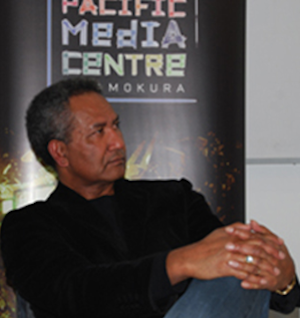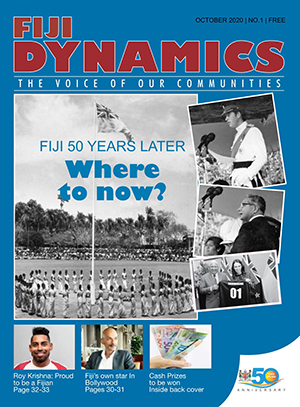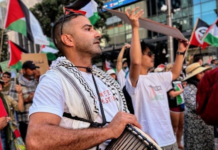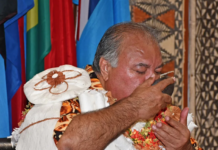Pacific Media Watch Newsdesk
A new Fiji magazine published by a New Zealand-based media collective made its debut this weekend to mark Fiji’s 50th Independence Day anniversary.
The first monthly edition of Fiji Dynamics was launched yesterday, 10th October 2020 – Fiji Day.
The editorial team is made up of senior Fiji journalists and media personalities who now live and work in Aotearoa-New Zealand.
Fiji Dynamics aims to help inspire and further enhance the rich diversity of New Zealand’s multicultural communities.
One of the organisers, Rachael Mario, from the Whānau Community Centre, is delighted at having a place for community groups to share their stories.
“By promoting our views, identity and culture, ths magazine will unite our communities, and help inspire our youth,” she said.
“The new magazine reflects and defines the Fiji community. With this being Fiji’s 50th anniversary of independence, and also Fijian Language week, it makes this even more special.”
One of the articles published in this inaugural edition, was this reflection below by Professor Steven Ratuva, director of the Macmillan Brown Pacific Centre for Pacific Studies at the University of Canterbury:
REFLECTIONS FOR THE PAST 50 YEARS: FIJI’S CHALLENGES AND HOPES
By Professor Steven Ratuva

I vividly remember that memorable day, 10 October 2970, as a young village boy attending Yale Dustrict School in Kadavu, when the British flag was lowered for the last time and the new sky blue Fijian flag with its colourful design was hoisted amid the cheers and tears.
It was a moment of youthful hope and optimism, and now 50 years later, I am reminiscing and reflecting on a journey so full of intrigue and challenges as well as resilience and hope.
Governments and constitutions have come and gone, either through democratic elections or illegal use of force, but Fiji as a collective of ordinary people living their ordinary lives, remain the cornerstone of hope in a country scarred by ethno-political tension, economic inequality, contestation of power by competing groups and abuse of authority by leaders.
Since independence, Fiji underwent a multicultural experiment under Ratu Sir Kamisese Mara, which saw two main contending forces, communal nationalism (ethnic and cultural groups demanding attention) and civic nationalism (unity and common identity) competing for supremacy in syncretic and complex ways.

There were moments of contractions and accommodation taking place simultaneously and by and large there was a sense of equilibrium until the first coup in 1987 when communal nationalism expressed itself in a seriously violent way with the help of the military.
This was repeated in 2000. While the 2006 coup was meant to reverse the trend using the fallacious “clean-up” narrative, it merely entrenched an ethno-business and political patronage under the tutelage of an all-powerful despotic clique.
The neoliberal reforms which followed have led to the dysfunction of the civil service, accumulation of crippling debt, nepotism and the formation of an ethnic clique system operating under the guise of “merit” and “de-ethnicisation”, which undermines the spirit of multiculturalism, equity and diversity.
Despite these setbacks, the sense of shared resilience and collective benevolence of the people is a reason why we have not had an ethnic civil war as we have seen in Rwanda, Solomon Islands, Bosnia and Sudan.
Article by AsiaPacificReport.nz








